Pop Toys and Power Politics: Israel and the Eurovision Song Contest
Netta Barzilai is probably the most famous Israeli American Jews have never heard of. The quirky, funky singer won the 2018 Eurovision Song Contest with her hit “Toy,” an ode to female empowerment that features a mash-up of K-pop, Middle Eastern sounds, and chicken noises (somehow it works). The official video for “Toy” has more than 114 million views, a view count that is far closer to that of stars like Beyoncé than Netta’s fellow Eurovision contestants.
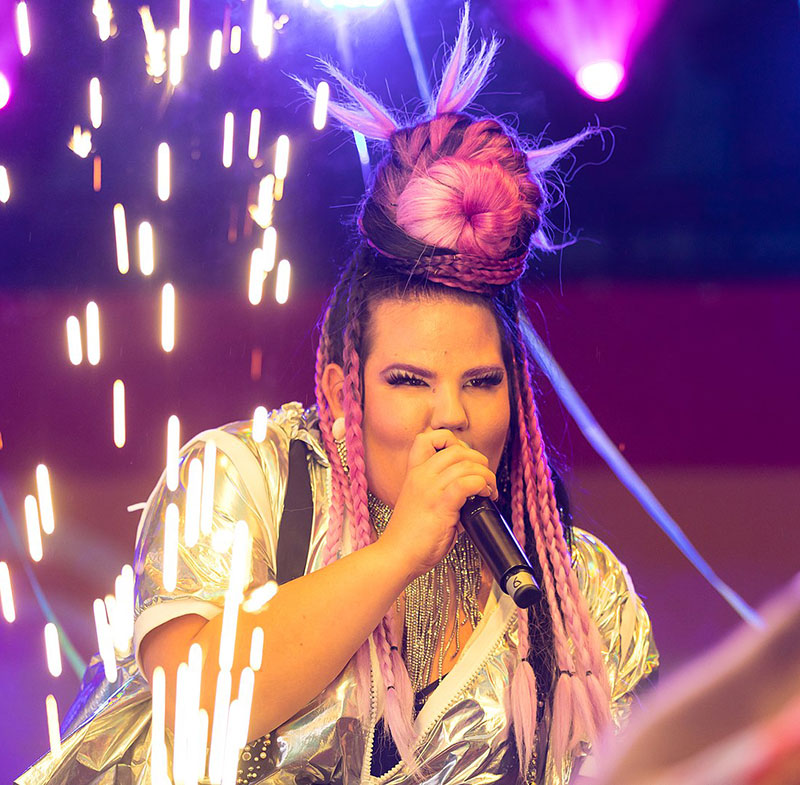
With Netta’s victory, Israel won the right to host Eurovision this year, an international song contest famous for launching the careers of superstars including ABBA, Julio Iglesias, and Céline Dion. It remains to be seen if any careers will be launched during the two semifinal contests scheduled on May 14 and 16 or the final competition on May 18, but being broadcast live to hundreds of millions of viewers can’t hurt.
Israel is in high gear preparing for an international competition whose name begs the question: Why is Israel in a European song contest in the first place? The quick, formal answer is that the only bar for participation in Eurovision is membership in the European Broadcasting Union (EBU), an alliance of public broadcasting bodies. Israel joined the EBU in 1957 and first entered Eurovision in 1973. It has participated every year since, winning four times, more than any other non-European competitor (that list includes Australia, Cyprus, and Azerbaijan).
I was first introduced to Eurovision as a camper at Camp Ramah Palmer in 1998. The Israeli counselors had Israel’s 1998 winning entry, “Diva” by Dana International, on endless repeat, and I’ve been a fan ever since. This year there are unique challenges for American Eurovision fans. Back in April, the cable channel that usually carries the Eurovision semifinals and final announced it won’t carry them this year. I’m hoping YouTube will make it available for U.S. watchers. If that doesn’t work, there’s the technical workaround of using a virtual private network to access a European IP address, but that won’t entirely work for Shabbat-observant viewers like me who need a way to tape the parts of the competition that air on Friday night and Saturday before sunset. Meanwhile, social media outlets like Twitter and Instagram help American fans stay up on the latest news and happenings.
Cynics criticize the festival as a cheesy competition with bad music and outrageous costumes and mock its naïve sentimentality. But not taking Eurovision seriously or ignoring it altogether means ignoring the power of cultural politics and performance. Eurovision is a deeply political activity disguised as a campy contest that hopes to transcend those very politics. For Israel, being part of Eurovision is a potent way of asserting its identity as a member of the community of nations. It’s a reflection of the classic Zionist idea of normalization, of creating a Jewish country that is a country like any other. Winning Eurovision and hosting Eurovision send the message that Israel is important in the cultural realm, that it is on the map for something other than the conflict with the Palestinians.
The Eurovision Song Contest offers an opportunity for Israel to advertise to the world the kind of country it wants to be, a musical message to be broadcast in three minutes or less. As the host country, Israel also has the opportunity to convince viewers to visit and spend their tourist dollars there—or at the very least to have a slightly more favorable view of the country.
Israel hosted Eurovision in Jerusalem in both 1979 and 1999—it declined to host the 1980 contest, citing financial strains and because the 1980 contest would have conflicted with Israel’s memorial day for fallen soldiers—and this year Tel Aviv beat out Jerusalem, Haifa, Eilat, and Petah Tikva to be the host city. Tel Aviv’s win came despite public support for Jerusalem from Prime Minister Benjamin Netanyahu, who saw in Eurovision 2019 an opportunity to solidify Jerusalem’s status as a capital city.
Like any Eurovision host city, Tel Aviv will advertise an idealized version of itself. Just as Jerusalem can project the ideal of “Yerushalayim shel ma’alah,” this year’s host city can project “Tel Aviv shel Eurovision,” a hip, youthful cultural center that welcomes tourists and, in a way, encloses them in a bubble that keeps out Israel’s problems. When the contest was held in Kyiv, Ukraine, and Baku, Azerbaijan, critics argued that the governments of those countries were using Eurovision to paper over concerns of human rights abuses and corruption. Similar charges were leveled at Israel, and various BDS efforts pushed contestants not to participate this year. Despite the pressure, no countries dropped out, though the Icelandic techno band Hatari has been vocal in its opposition to Israel. In an interview, the band indicated that being kicked out for its criticism of Israel would be the best outcome, but if it can adhere to the rules and remain apolitical on stage, it has a chance of winning. In addition to avoiding a boycott, Israel was also successful in attracting Madonna to perform at this year’s finale. (Her appearance was paid for by the Israeli Canadian billionaire Sylvan Adams, who played the key role in bringing the Giro d’Italia bicycle race to Israel in 2018.)
Although terrorism isn’t unknown in European countries, Israel is alone in being within striking distance of rockets. Earlier this month, Hamas and Palestinian Islamic Jihad fired hundreds of rockets at communities in Israel’s south, saying explicitly that their intent was to disrupt Eurovision and that they would extract concessions in exchange for a ceasefire. The attacks prove how important Eurovision is to Israel and how high the stakes are. If Israel can pull it off, it sends a powerful message both to the world and to Israelis themselves. (Israel’s KAN broadcaster will give free tickets to rehearsals and semifinal competitions to Israelis living within 25 miles of Gaza. KAN called the offer a “sign of support and appreciation” for the communities bearing the brunt of Israel’s appearance on a global stage. It also helps the problem of low ticket sales.)
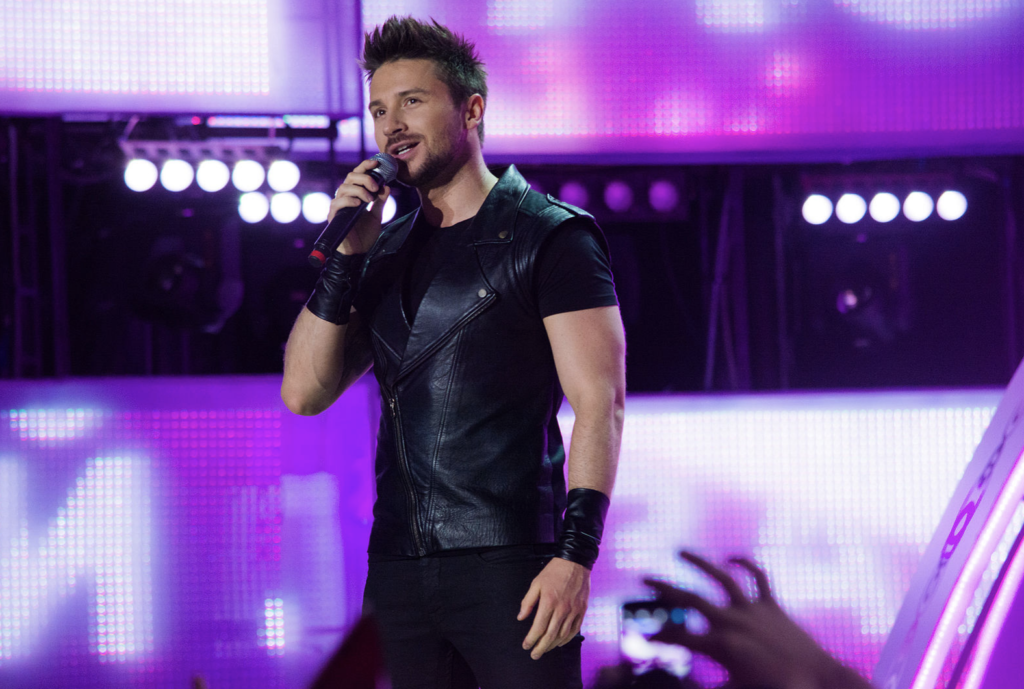
From the outset, Shabbat posed several challenges to Eurovision. While the final contest is Saturday night, the schedule requires rehearsals to take place during the day. In the contest to choose this year’s Israeli representative for Eurovision, one of the competitors, the Shalva Band, a group composed of musicians with disabilities, announced that it would not participate in the required Shabbat rehearsals for Eurovision. Minister of Culture Miri Regev asked the EBU to grant the Shalva Band an exception, but her request was denied. The Shalva Band forfeited. In the end, Israel chose crooner Kobi Marimi as its representative. Where Netta forged her own path to victory by crafting a unique sound and look, Marimi is more like a mash-up of all the forgettable candidates from the last 10 years of competition, a cut-rate Michael Bublé. There is more excitement around Russian contestant Sergey Lazarev, a favorite to win whose popularity in Israel is huge.
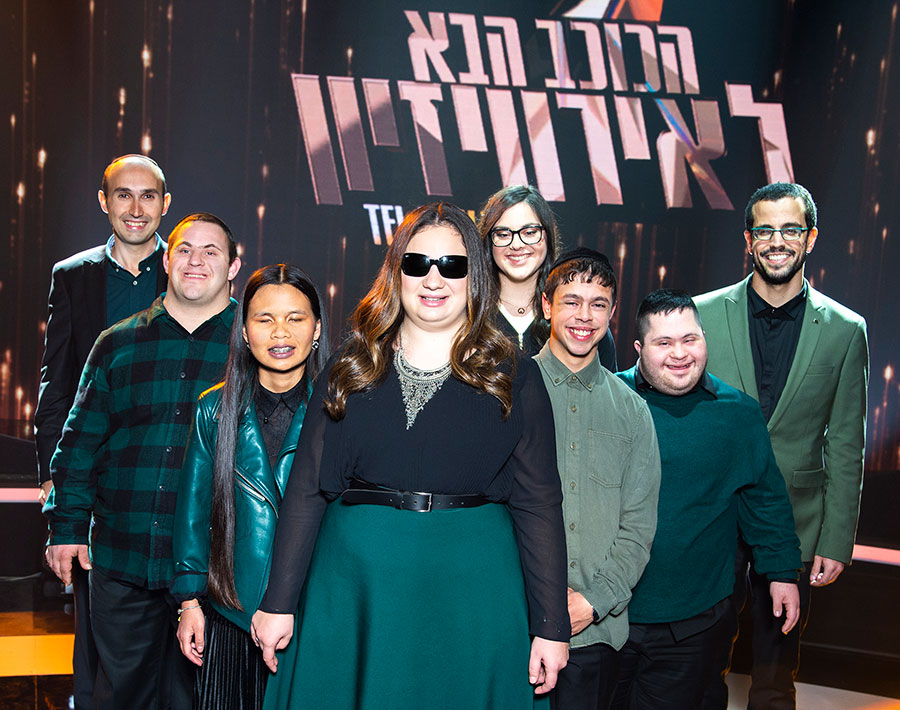
Tel Aviv mayor Ron Huldai announced that the city will run free shuttles to and from the contest arena on the Friday and Saturday of Eurovision, a decision that many secular Tel Aviv residents hope will set a precedent for public transportation on Shabbat in the near future. On the other hand, visiting tourists can sign up online for Shabbat dinners with local hosts.
Eurovision’s desire for a comfortable exoticism may be why three of the four Israeli Eurovision winners have been Mizrahi Jews who combined elements of Arab, European, and American music. Netta, whose ancestry is a mix of Polish, Libyan, and Moroccan forebears, also mixed elements of Mizrahi music into her winning song, which got enthusiastic comments from Iraq and Egypt when Israel’s foreign ministry shared a video of Netta singing “Toy” on its Arabic-language Facebook page.
No other Middle Eastern countries currently compete in Eurovision. Turkey and Morocco have competed in the past, and Lebanon planned to compete but dropped out because its national broadcaster is barred from carrying Israeli content. That doesn’t mean that Israel is the only Middle Eastern influence, though. This year Italy will be represented by the singer Mahmood, a young man of mixed Sardinian and Egyptian descent whose song rhymes “Ramadan” with “Jackie Chan” and who sings in Italian and Arabic. France’s representative, the singer of the power ballad “Roi,” is Bilal Hassani, whose family is originally from Casablanca. Coincidentally, the network that is showing Eurovision in Israel had to delay the broadcast of a sitcom in which a gay French Eurovision contestant of North African descent is recruited by ISIS to stage an attack on the contest. Although the show’s creators say they intended to skewer the homophobia and xenophobia that men like Hassani face, France threatened to pull out of the contest if the show aired before Eurovision.
Eurovision is unabashedly camp, dedicated to rehabilitating the sentimental, the affectionate, and the pure. Through pageantry, the contest aims to subsume conflicts between its members as part of a larger program of international peace. Of course, these are deeply naïve, even absurd, goals—almost as absurd as Eurovision’s song and dance numbers. Yet, rather than a cynical rejection of all Eurovision holds dear, I recommend paying attention to how Israel shapes its image through the international politics of camp. In its silliness, Eurovision can be deadly serious. The most stunning Israeli use of political camp did not win Eurovision, although it did get second place. In 1983, Ofra Haza sang “Chai,” an ode to Jewish survival, in Munich, Germany, the same city where just over a decade earlier, terrorists murdered 11 members of the Israeli Olympic team and reopened wounds still unhealed from the Holocaust. The song was the perfect mix of pop, folk, and ballad. While her five backup singers were dressed in yellow, evoking the yellow stars Jews were forced to wear by the Nazis, Haza, decked in a glittery white pantsuit, symbolized the resurrection of the Jewish people. The performance catapulted her to worldwide fame.
It’s easy to read Haza’s achievement in Eurovision cynically, that a Middle Eastern talent such as hers needed European approval for singing a song about the Holocaust before Israelis would accept her as one of their own, a home-grown Mizrahi superstar—a reading that undoubtedly has some truth. It’s even easier to write Eurovision off as irrelevant, a silly competition showcasing kitschy music and frightful outfits from around the globe. But in ignoring Eurovision, one ignores the political power of cultural performance.
I don’t know if Netta Barzilai will eventually achieve success at the level of Ofra Haza. But her second song, “Bassa Sababa,” suggests her future path. Far from an upbeat theme of empowerment, the song is a futuristic dystopian pop banger on steroids, sung in a choppy English that marks much of global popular music today. Set in a digitized computer game, the song’s video shows Netta as a pink rhino, chasing her prey in a futuristic and barren landscape. It is not immediately recognizable as an Israeli song, save for the title, which is made of two Hebrew slang terms with Arabic origins. Bassa is a bummer, while sababa signifies something awesome, which brings us back to Israel’s participation in the Eurovision Song Contest and the power of the hybrid. The result is not muddled moderation but something else entirely.
Comments
You must log in to comment Log In
Suggested Reading
No Sex in the City: On Srugim
A new Israeli TV show chronicles single life in Jerusalem.
Shababshubap
Black hat chic: Shai Secunda's review of Shababnikim, the new television show about cool yeshiva students.
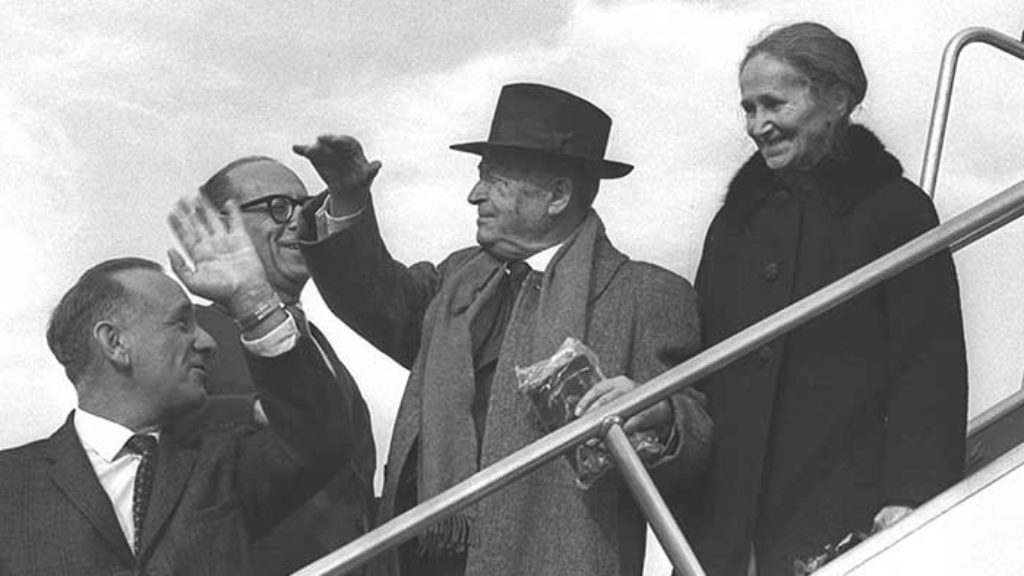
On Agnonizing in English
For the Hebrew reader, S. Y. Agnon is not merely canonical, he stands almost outside of time.
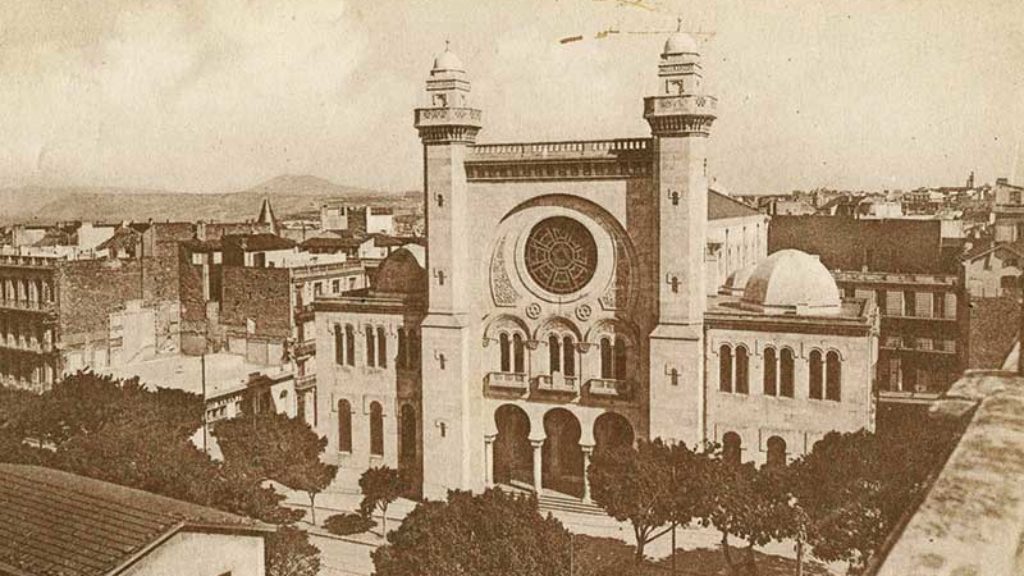
Homer of Lod: The Indispensability of Erez Bitton
The blind writer from Algeria is one of Israel’s most important voices, both in poetry and in policy.
Alan Abbey
A few small points. Israel has twice bowed out of the annual contest - In 1980, the IBA declined to host the contest for the second successive year for financial reasons, and as the date for the contest in The Hague conflicted with Yom Hazikaron – Israeli Memorial Day – Israel did not participate. In 1984 Israel once again refrained from participating due to the same date conflict. (source: https://en.wikipedia.org/wiki/Israel_in_the_Eurovision_Song_Contest). It's also easy to watch online via the Kan website - kan.org.il, unless it's blocked somehow in the US of A. Well worth the investment of time for a laugh and to see great Israel locations in-between the songs.